Current Projects
Country: Mexico
Showing 1 - 21 of 21
21 results found
To leverage the conservation caucus model to increase the sustainability of funding for protected areas systems.
To foster sustainable practices in the agave-mezcal value chain in the Oaxaca Mezcal Region through an integrated landscape management approach that privileges non-monoculture cultivation, species protection and the maintenance of ecosystems services.
To enhance national-level institutional and technical capacities for the 2021-2022 UNCCD reporting process in the context of the UNCCD Strategic Framework 2018-2030 and SDG15.3
Prevent the risks to environment and human health from mercury through the control of primary mercury mining and enabled environmentally and socially sound alternative economic activities and livelihoods in the state of Queretaro
Improve water quality, rehabilitate the coastal and marine ecosystems, and avoid depletion of marine resources in the Gulf of Mexico Large Marine Ecosystem (GoM-LME)
To assist GEF-Eligible Parties to the Cartagena Protocol on Biosafety to prepare and submit their Fourth National Reports on measures that each Party has taken to implement the Cartagena Protocol on Biosafety
Assist Mexico in the development of its National Action Plan, raise national awareness on the Minamata Convention and build initial national capacity for the early implementation of the National Action Plan
To implement innovative technical small-scale solutions in the Wider Caribbean Region using an integrated water and wastewater management approach building on sustainable financing mechanisms piloted through the Caribbean Regional Fund for Wastewater Manag
To enable country Parties to collect necessary biophysical, socioeconomic data, establish sound reporting and monitoring systems at national level and report against the UNCCD Strategy
To Assist GEF-Eligible Parties to the Nagoya Protocol on Access and Benefit Sharing to prepare and make timely submission of their Interim National Reports on measures that each party has taken to implement the Protocol in line with Article 29
To reduce the vulnerability of communities living in three medium-sized Latin American and Caribbean cities to the effects of climate change through the integration of Ecosystem-based Adaptation (EbA) into urban planning in the medium- to long-term.
Create and strengthen conservation caucuses of Members in national congresses of Colombia, Mexico, and Peru to build political will for enhanced management of natural resources for development and conservation.
To Assist GEF-Eligible Parties to the Cartagena Protocol on Biosafety to prepare and make timely submission of their Third National Reports on measures that each party has taken to implement the Protocol in line with Article 33.
To strengthen the capacity for implementation of the updated POPs Global Monitoring Plan (GMP) and to create the conditions for sustainable monitoring of POPs in the Latin American and Caribbean Region
To support the development of national fuel economy policies in 20 countries, 6 countries through GEF-5 STAR Allocations and 14 without GEF funding, using existing tools developed with GEF-4 support (examples are the fuel economy baseline calculation methodology and online GFEI toolkit). In addition, to support coordination of the 20 country projects at the regional level to ensure that results are disseminated to other countries within the region. This will result in reduced vehicle fleet CO2 emissions in these 20 countries inline with the Global Fuel Economy Initiative's target of a 50% improvement of the overall global fleet fuel economy by 2050.
Develop and implement a participatory strategy to sustainably conserve biodiversity engaging communities, government and NGO participation.
Contribute to the development and implementation of a more comprehensive and sustainable Low Emissions Development Strategy (LEDS) for Mexico through an integrated assessment of short-lived climate forcers (SLCF), and the development and demonstration of targeted SLCF mitigation policies
To formulate a comprehensive, binational, ecosystem-based action programme(SAP) based on the principles of integrated water resources management, for the sustainable management and use of the Rio Bravo throughout its basin, and to create the necessary enabling social-economic and policy mechanisms for implementing the agreed action programme and engendering the neccesary reforms.
Reduce negative impacts of mercury and mercury wastes from the chloralkali sector on human health and the environment in Mexico
Accelerate Minamata Convention compliance through better understanding of mercury trade trends in Latin America and promotion of regional cooperation towards an improved control of major mercury flows
Accelerating action to achieve a net-zero, nature-positive and climate-just Mexico (Mexico Net-zero)
Mexico is on track towards a net-zero and nature positive economy, achieved through a climate-just transition
Showing 1 - 21 of 21




